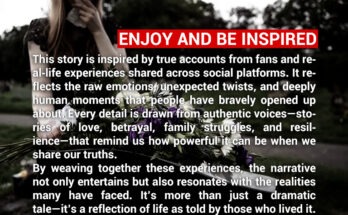When my manager asked me to train the new employee, I didn’t hesitate—until I realized it wasn’t part of my job description, and I wouldn’t be compensated. I’d already been juggling extra responsibilities without recognition, and this felt like one more unpaid task. I politely declined, explaining that I was happy to help if it was formalized with either time off or a bonus. My manager wasn’t pleased. Days later, HR called me in. They said I was “not being a team player.” I was stunned. Since when did standing up for fair treatment make me the villain?
I laid out my case clearly. I wasn’t refusing to help—I was refusing to be exploited. I’d trained three employees in the past year, all without compensation. Each time, I’d been promised “future consideration” that never came. I asked HR to show me where in my contract it said I was responsible for onboarding. They couldn’t. I asked if the new hire’s training was budgeted. It wasn’t. I reminded them that unpaid labor isn’t just unfair—it’s unsustainable. They said they’d “review the situation.” I left the meeting frustrated but firm. I wasn’t backing down.
Word spread quickly. Some coworkers supported me, others whispered that I was “difficult.” But a few quietly admitted they’d felt the same way—overworked, undervalued, and expected to do more for less. I realized I wasn’t just fighting for myself. I was challenging a culture that normalized burnout. I documented everything, from emails to meeting notes, and sent a formal request for role clarification. HR responded with a vague statement about “team collaboration.” I replied with a clear boundary: no training without compensation. That was my line in the sand.
Eventually, my manager relented. They assigned the new hire to a formal mentor program, and I was removed from the task. HR never apologized, but they did update internal guidelines to clarify training responsibilities. It wasn’t a victory parade—but it was progress. I’d stood up, stayed professional, and forced a conversation that had been ignored for too long. I didn’t lose my job. I gained respect. And I learned that sometimes, the quiet pushback is the loudest message of all.
Now, I encourage others to speak up. Fairness isn’t entitlement—it’s equity. If you’re doing extra work, you deserve extra recognition. Companies thrive when employees feel valued, not when they’re guilted into silence. I didn’t burn bridges—I built boundaries. And those boundaries became the foundation for a healthier work life. I still help when I can—but never at the cost of my worth.
So yes, I refused to train the new employee for free. HR got involved, but I held my ground. And in doing so, I reminded everyone—including myself—that respect isn’t given. It’s earned. And sometimes, it starts with one brave “no.”


